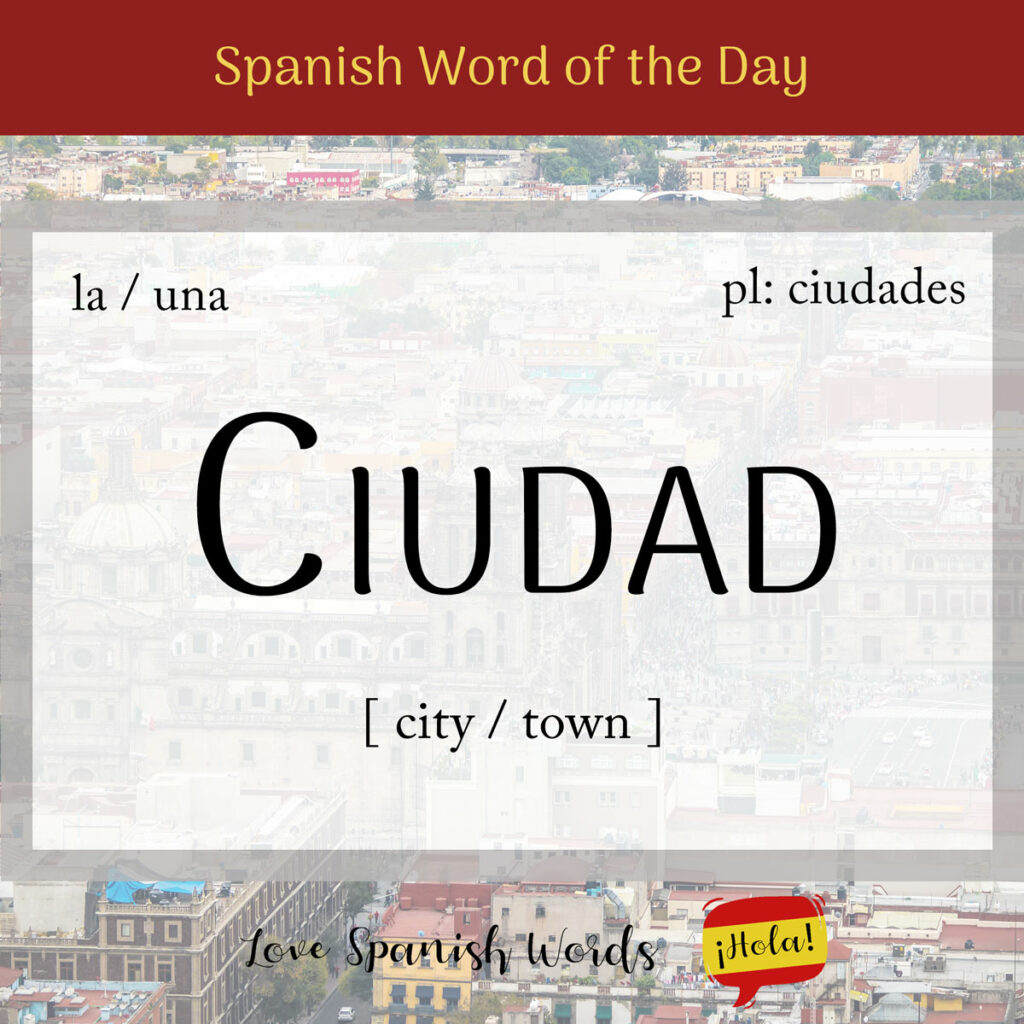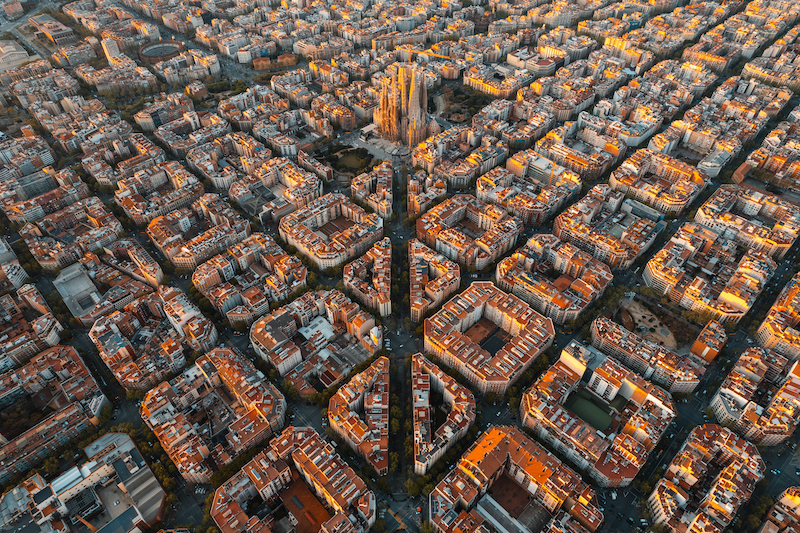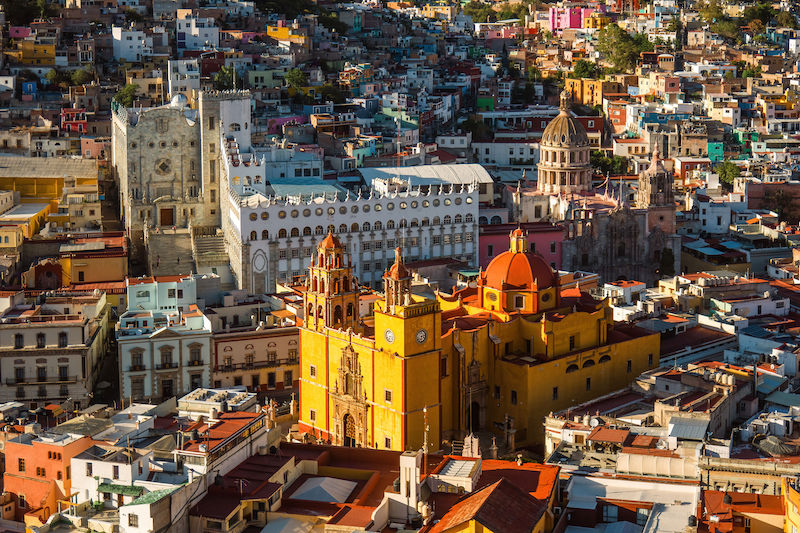A populated place where people live, work and play is called a ciudad (city) in Spanish.
Latin American Pronunciation
European Pronunciation

Ciudad is a feminine noun that takes the following definite and indefinite articles:
- la ciudad = the city
- las ciudades = the cities
- una ciudad = a city
- unas ciudades = some cities
No quiero vivir en una gran ciudad.
I don’t want to live in a big city.

Although town is often translated as pueblo in Spanish, ciudad is also a possible translation when the size of the town is ambiguous. For example, in English, we might say I need to drive back into town. Here, the word town could denote a built-up area of any size, so you could safely use ciudad.
Condujimos de regreso a la ciudad para disfrutar de una cena rápida.
We drove back into town for a quick dinner.
If you want to translate the word hometown into Spanish, you have to use the word ciudad natal (literally “birth city”), even if you were born in a small town.
La Ciudad de México es mi ciudad natal.
Mexico City is my hometown.
In order to specify the size of the city or town in question, you can use adjectives such as pequeño (small) or grande (big) if need be.
Here are a few useful terms related to the word ciudad:
- centro de la ciudad = city centre
- ciudad jardín = garden city
- ciudad nocturna = city with a good nightlife
- ciudad dormitorio = commuter town
- ciudad histórica = historic city
- ciudad portuaria = port city
- ciudad perdida = lost city

In addition to a city, ciudad can also refer to a collection of facilities and buildings designed for a specific activity, which in English can be translated as a complex or campus. For example, it can denote a sports complex (ciudad deportiva), hospital complex (ciudad sanitaria) or a university campus (ciudad universitaria).
Me gusta esta ciudad universitaria. Tiene buen ambiente.
I like this university campus. It has a good vibe.

